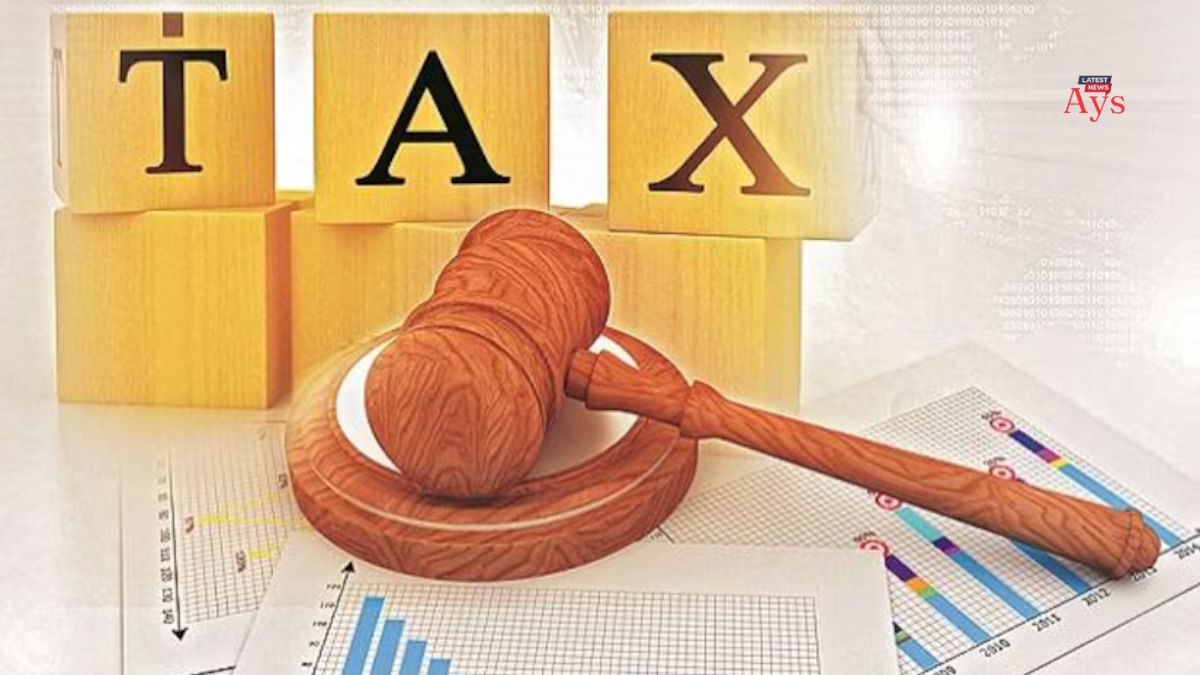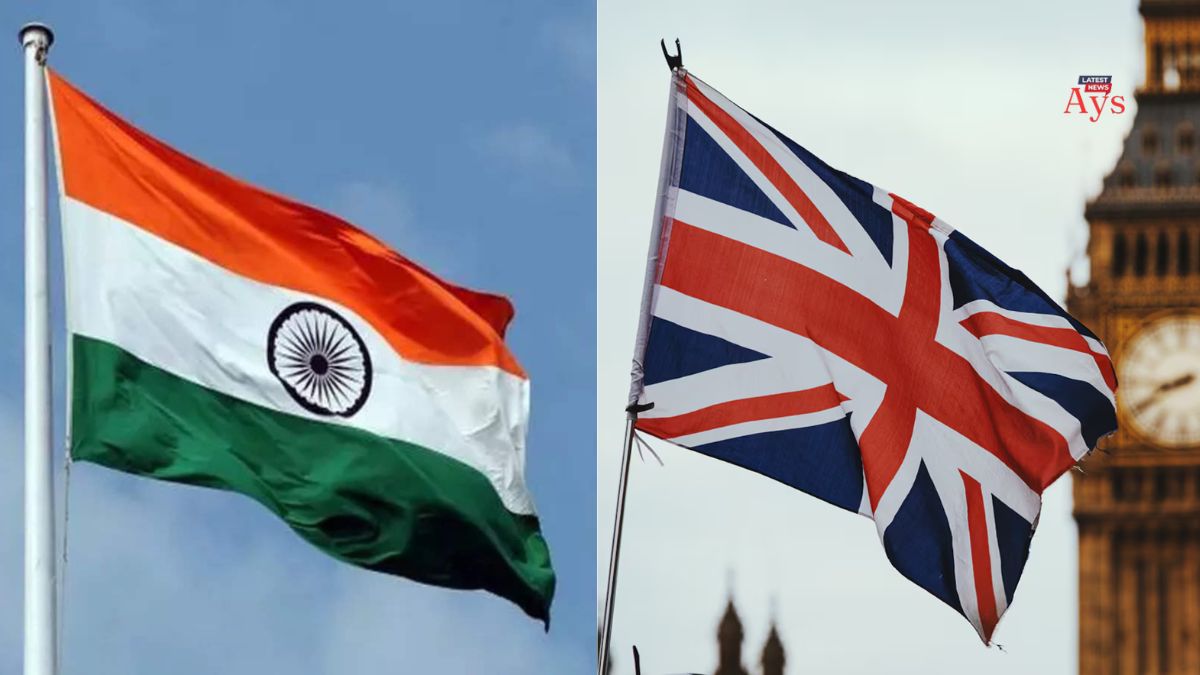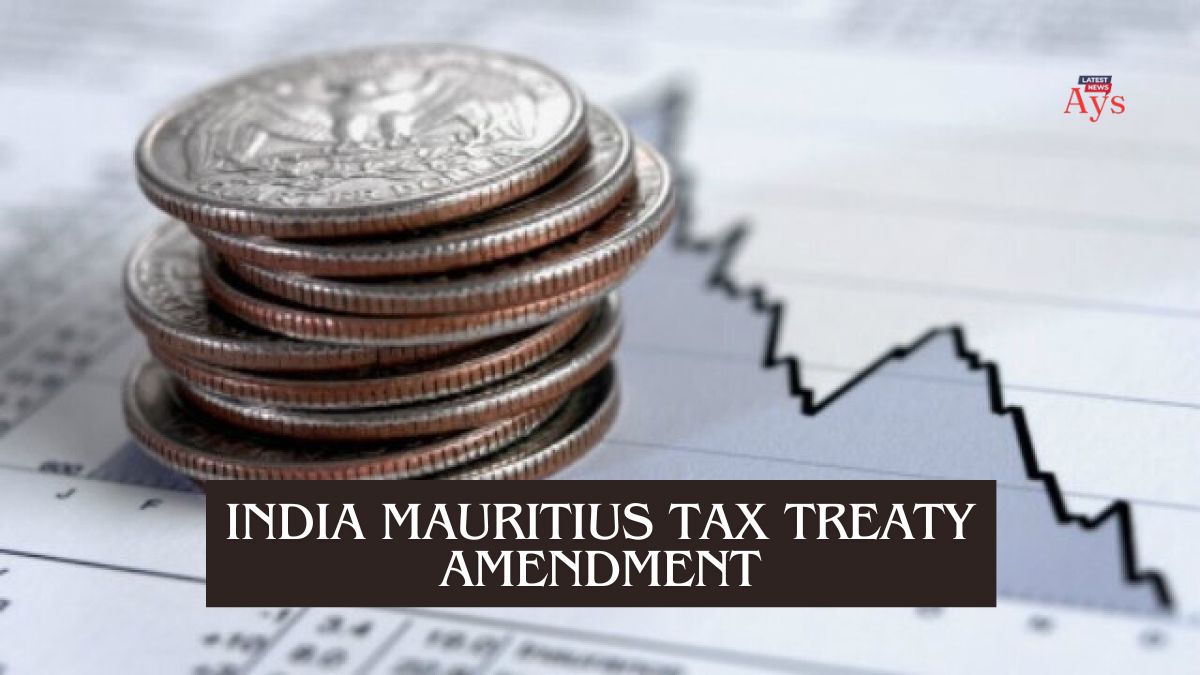India Mauritius Tax Treaty Amendment
Contents
- 1 India Mauritius Tax Treaty Amendment
- 2 india mauritius tax treaty amendment pdf
- 3 mauritius tax treaty with india
- 4 Does India have DTAA with Mauritius?
- 5 Who pays tax in Mauritius?
- 6 Is there a tax treaty between India and Mauritius?
- 7 What is the DTAA treaty between India and Mauritius?
- 8 What is Article 13 of DTAA between India and Mauritius?
- 9 What is the DTAA rate in Mauritius?
- 10 What is Article 7 of DTAA between India and UK?
- 11 What does it mean to claim a tax treaty?
- 12 Final TakeAway:

Unpacking the India-Mauritius Tax Treaty Update: What Investors Need to Know
Have you heard about the recent changes to the India-Mauritius tax treaty? This update impacts how businesses and investors route their money between the two countries. Here’s a breakdown of the key points in a way that’s easy to understand:[India Mauritius Tax Treaty Amendment]
What’s the India-Mauritius Tax Treaty?
Think of it as an agreement between India and Mauritius to avoid double taxation. This means you wouldn’t get taxed on the same income in both countries. Previously, Mauritius was a popular choice for investors because it offered tax benefits.
What changed?
India introduced a new rule called the Principal Purpose Test (PPT). In simpler terms, this test makes sure you’re not just setting up a company in Mauritius to avoid paying taxes in India. You’ll need to have a genuine business reason for investing through Mauritius.
What does this mean for me?
If you’re a foreign investor using Mauritius to invest in India, this amendment might affect you. You’ll need to ensure your investments have a legitimate commercial purpose beyond just tax savings.
What are the next steps?
- Talk to a tax advisor: They can help you understand how the PPT applies to your specific situation.
- Review your existing investments: See if they comply with the new rules.
Key things to remember
- This is all about stopping tax avoidance, not genuine foreign investment.
- The PPT applies to new investments and there’s some ambiguity on how it affects existing ones.
Stay informed
The official rules and their implementation are still being ironed out. Keep an eye on updates from the Indian and Mauritian tax authorities.[India Mauritius Tax Treaty Amendment]
Overall, this amendment aims to create a fairer tax system. If you’re unsure about anything, consult a tax professional for personalized advice.
india mauritius tax treaty amendment pdf
You Can Get India Mauritius Tax Treaty Amendment PDF From Here.
- Deloitte: This Deloitte explainer [PDF] outlines the background and key changes of the protocol amending the treaty, including the introduction of the Principal Purpose Test (PPT). It also includes relevant extracts of the protocol in an annexure: https://www2.deloitte.com/in/en/pages/tax/articles/tax-alert-protocol-amending-india-mauritius-tax-treaty.html
- SC Vindhar: This resource provides an overview of the amendments made in 2016, including source-based taxation of capital gains on shares. While not the most recent amendment, it offers context for the ongoing developments: https://business.outlookindia.com/news/india-mauritius-sign-protocol-to-amend-tax-treaty-principal-purpose-test-introduced
mauritius tax treaty with india
India and Mauritius have a Double Taxation Avoidance Agreement (DTAA) to prevent investors from being taxed twice on the same income. However, the treaty was recently amended in March 2024.
- Before March 2024: The DTAA allowed Mauritius-based investors to avoid capital gains tax on Indian investments. This attracted a lot of foreign investment routed through Mauritius, with some companies setting up shell entities there to take advantage of the tax benefit.
- March 2024 Amendment: India and Mauritius signed a protocol amending the DTAA. The key change is the introduction of the Principal Purpose Test (PPT). Now, simply having a Mauritian tax residency certificate isn’t enough to claim treaty benefits. The PPT ensures the benefits are used for legitimate investments and not just for tax avoidance.
Does India have DTAA with Mauritius?
Yes, India has a Double Taxation Avoidance Agreement (DTAA) with Mauritius. The agreement was first signed in 1983 and was recently amended in March 2024 to include a Principal Purpose Test (PPT) to prevent tax avoidance.This means that the tax benefits of the DTAA will only be available to investments with legitimate business purposes.
Who pays tax in Mauritius?
In Mauritius, there are two main categories of taxpayers
- Resident individuals: These are people who live in Mauritius, regardless of their nationality. They are taxed on their worldwide income, though income derived from outside Mauritius is only taxable when it’s received in the country.
- Non-residents: These are individuals who don’t live in Mauritius. They are only taxed on income derived from sources within Mauritius, with some exceptions depending on applicable tax treaties.
There are also different tax systems for employed people (PAYE) and self-employed individuals (CPS).
Is there a tax treaty between India and Mauritius?
Yes, there is a tax treaty between India and Mauritius. It’s a Double Taxation Avoidance Agreement (DTAA) aimed at preventing double taxation and fiscal evasion with respect to taxes on income and capital gains. This treaty has been in place since 1983.
However, there have been some recent developments
- In 2016, the treaty was revised to allow India to tax capital gains on share transactions routed through Mauritius under certain conditions.
- On March 7, 2024, India and Mauritius signed a protocol to further amend the DTAA. This amendment includes a Principal Purpose Test (PPT). This means the tax benefits under the treaty won’t apply if the main purpose of a transaction is to avoid taxes.
What is the DTAA treaty between India and Mauritius?
The DTAA between India and Mauritius stands for Double Taxation Avoidance Agreement. It’s a treaty signed by both countries to prevent investors from getting taxed on the same income twice.
Here’s a quick breakdown
- Benefits: This treaty allows investors to avoid double taxation, making it an attractive route for foreign investment into India.
- Tax Advantages: Previously, Mauritius offered significant tax benefits, making it a popular choice for investors routing money to India.
- Changes: The DTAA has been amended to prevent tax avoidance. A new rule called the Principal Purpose Test (PPT) ensures investments have a legitimate business purpose and not just set up to avoid Indian taxes.
What is Article 13 of DTAA between India and Mauritius?
Article 13 of the DTAA between India and Mauritius deals specifically with the taxation of capital gains arising from the sale of assets. Here’s a simplified explanation
Article 13 Breakdown
- Focuses on Capital Gains: It determines where capital gains taxes are paid on the sale of assets like property or shares.
Different Asset Types, Different Rules: - Real Estate: Gains from selling real estate (land and buildings) are taxed in the country where the property is located.
- Shares: The rules for taxing capital gains on shares depend on when they were acquired:
- Shares acquired before April 1, 2017: Generally exempt from capital gains tax in India.
- Shares acquired on or after April 1, 2017: Taxed in the country where the company issuing the shares is resident (usually India).
Key Point
The amendment to the DTAA in 2016 significantly impacted Article 13. Previously, Mauritius offered an exemption on capital gains tax for shares in Indian companies, making it an attractive route for investment. The change in Article 13 shifted the taxation to India for shares acquired after April 1, 2017.
Note: This is a simplified explanation. The actual wording of Article 13 can be quite complex, and there may be exceptions or specific situations not covered here. For in-depth understanding, it’s always best to consult a tax advisor.[India Mauritius Tax Treaty Amendment]

What is the DTAA rate in Mauritius?
The concept of a single DTAA rate in Mauritius isn’t quite accurate. Here’s why
- DTAA Stands for Agreement: DTAA itself isn’t a tax rate, but a Double Taxation Avoidance Agreement. It sets out how India and Mauritius will avoid taxing the same income twice.
- Focus on Withholding Tax Rates: The DTAA specifies withholding tax rates for various types of income like dividends, interest, and royalties. These rates determine how much tax is deducted at the source when one country pays a resident of the other country.
- Variable Rates: The withholding tax rates depend on the specific type of income and the terms of the DTAA. For example, the India-Mauritius DTAA offers a lower withholding tax rate on dividends if the recipient owns a significant portion of the company paying them.
Finding Specific Rates
The actual withholding tax rates for different income types are outlined in the India-Mauritius DTAA document. You can’t find a single “DTAA rate” in Mauritius, but rather specific rates depending on the income source and the DTAA provisions.[India Mauritius Tax Treaty Amendment]
Here are some resources to help you find the details
- Official Documents: You can search the websites of the Indian and Mauritian tax authorities for the DTAA document between the two countries.
- Tax Advisors: Consulting a tax professional can be the best option as they can interpret the DTAA and advise on the applicable withholding tax rates for your specific situation.

What is Article 7 of DTAA between India and UK?
Article 7 of the Double Taxation Avoidance Agreement (DTAA) between India and the UK deals with the taxation of business profits. Here’s a breakdown of what it means
Focus of Article 7
- This article lays out how profits earned by a business from one country (say, the UK) through activities in the other country (India) are taxed.[India Mauritius Tax Treaty Amendment]
Key Points
- Taxation Based on Permanent Establishment (PE): A business from the UK is only taxed in India on the profits earned through a permanent establishment (PE) it has in India.
- A PE can be a branch office, factory, or any other fixed place of business operating in India.
- Profits Attributable to PE: Only the profits directly connected to the activities of the PE in India are taxable in India. The total revenue of the company isn’t the sole factor.
- Arm’s Length Principle: The article emphasizes the “arm’s length principle.” This ensures the PE’s profits reflect what an independent company would charge for the same services or goods. This prevents manipulation of profits to reduce tax burden.[India Mauritius Tax Treaty Amendment]
What it Means for Businesses
- Businesses from the UK can operate in India through a PE without getting taxed on their global profits in India.
- Careful record-keeping is crucial to demonstrate the PE’s specific contribution to the overall business and ensure accurate tax calculation.
Finding the Full Text
The exact wording of Article 7 can be found in the official DTAA document between India and the UK. You can access it through the websites of the Indian or UK tax authorities.
Additional Points
- The DTAA may be a complex document. Consulting a tax advisor familiar with India-UK tax regulations is recommended for a complete understanding and navigating specific situations.
What does it mean to claim a tax treaty?
Claiming a tax treaty essentially means taking advantage of an agreement between two countries regarding how taxes are applied to residents of each other’s country.[India Mauritius Tax Treaty Amendment]
- Double Taxation: Without a tax treaty, you could potentially be taxed twice on the same income – once in the country where the income is earned and again in your home country.
- Tax Treaty Benefits: Tax treaties help avoid this double taxation. They outline rules for how income is taxed for residents of each country. Benefits can include:
- Reduced tax rates: You might pay a lower tax rate on certain types of income earned in the other country.
- Exemption from withholding: You might be exempt from having taxes withheld from your income at the source (e.g., from investment dividends).
Who can claim a tax treaty?
- This benefit typically applies to residents, not necessarily citizens, of the countries with the tax treaty.
How to claim a tax treaty?
The process for claiming a tax treaty depends on the specific situation and the countries involved. It often involves
- Understanding the treaty: Familiarize yourself with the relevant tax treaty and its provisions for your income type.
- Completing forms: You might need to submit a specific form to the withholding agent (e.g., your employer) claiming the treaty benefit.
Final TakeAway:
The India-Mauritius tax treaty update might seem like a complex web of legalese, but fret not! Think of it as a refresh button to ensure everyone plays fair. This update focuses on genuine business activities driving investments, not just finding tax loopholes.[India Mauritius Tax Treaty Amendment]
Here’s your cheat sheet
- Talk to a tax pro: They’re your investment superheroes, ready to decode the DTAA and guide you through the specifics.
- Focus on the “why” behind your investment: A solid business reason is key, not just tax benefits.
- Stay informed: The world of taxes can evolve, so keep an eye on updates.
By following these tips, you can navigate the India-Mauritius investment landscape with confidence. Now go forth and conquer your investment goals![India Mauritius Tax Treaty Amendment]

